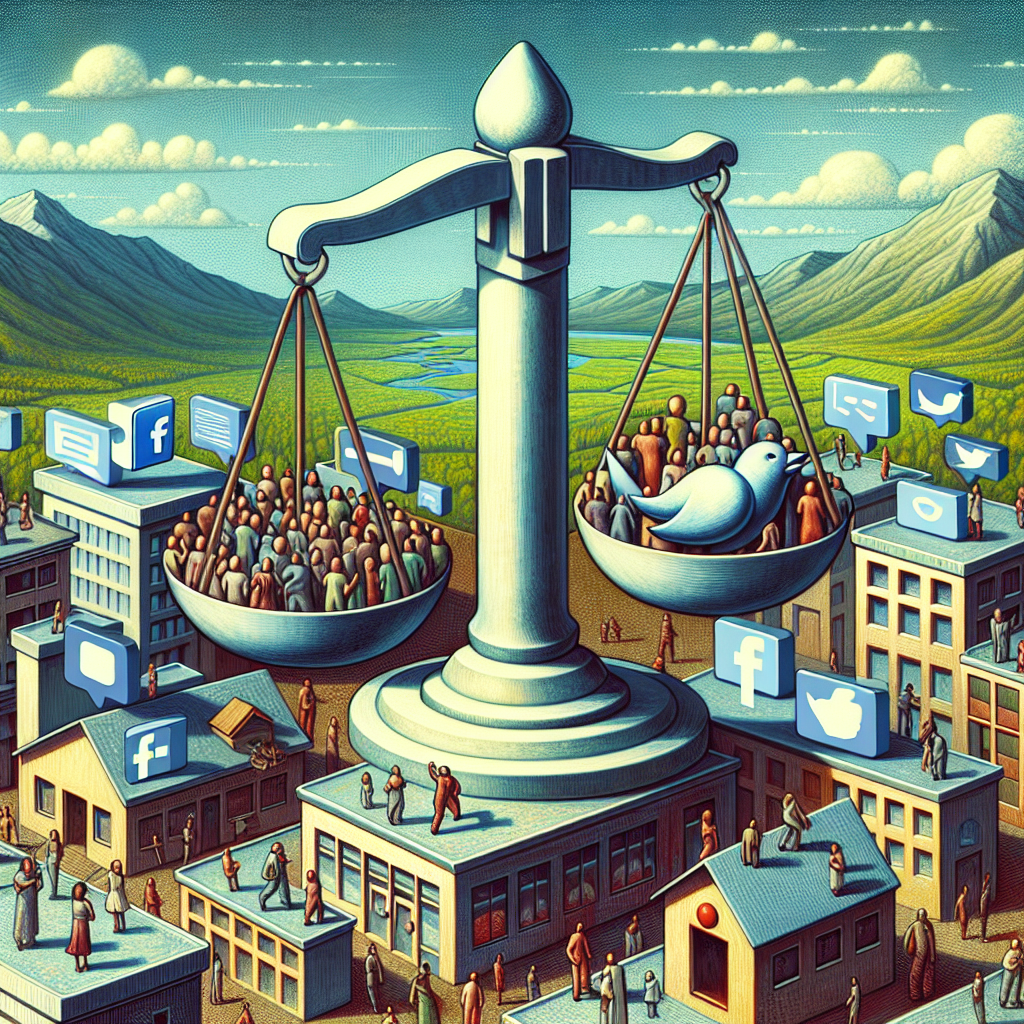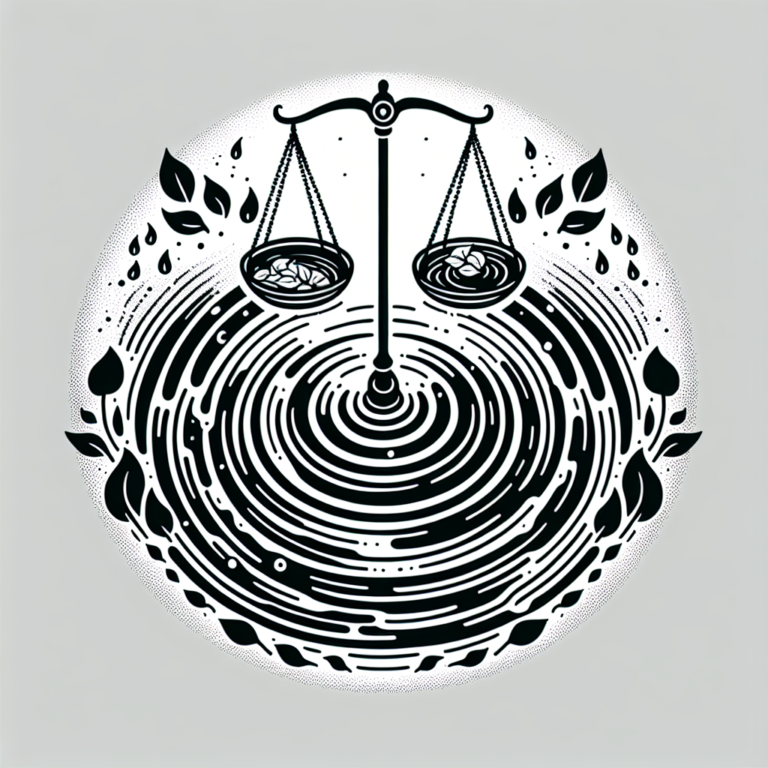Karma in the Age of Social Media: Understanding Its Significance in Our Digital Lives
Introduction
Karma is an age-old concept rooted in various philosophical and religious traditions, particularly in Hinduism, Buddhism, and Jainism. At its core, karma signifies the law of moral causation, implying that every action has consequences. In simple terms, good actions lead to positive outcomes, while negative actions lead to adverse effects. However, the advent of social media has transformed the way we perceive, understand, and experience karma. This article delves into the complexities of karma in the age of social media, illustrating how online interactions shape our lives and relationships and posing crucial questions regarding moral accountability in a digital environment.
The Evolution of Karma in a Digital Age
Understanding Traditional Karma
Before delving into the relationship between karma and social media, it’s essential to understand the traditional concept of karma. Originating from the Sanskrit word "karman," meaning "action," the idea has evolved over time. Within the context of Dharmic religions, karma binds individuals to the cycle of birth, death, and rebirth (samsara). Good deeds might lead to a better rebirth, while bad deeds could result in suffering in future lives.
The Rise of Social Media
The introduction of social media platforms like Facebook, Twitter, Instagram, and others fundamentally altered human communication. With millions of users sharing their thoughts, actions, and experiences, social media has become a powerful tool for connecting people across the globe. However, while it facilitates immediate communication, it also raises questions about the morality of our actions in this public domain.
Karma and Human Interaction on Social Media
The Amplification of Actions
In the digital space, karma operates differently. On social media, actions receive instant visibility. A single tweet or post can encourage a wave of support or backlash, leading to significant consequences for the individual involved. This amplification can lead to rapid and widespread reactions, causing an social echo chamber where thoughts and beliefs multiply quickly.
Positive Amplification
When someone shares an uplifting story, engages in charitable activities, or spreads awareness about social issues, they reap the benefits of positive karma. For instance, a viral post about a local charity event can inspire community involvement and donations, creating a ripple effect of goodwill. Such acts are promptly recognized and often rewarded with positive feedback in the form of likes, shares, and comments.
Negative Amplification
Conversely, negative actions can also be magnified in the digital landscape. A single misguided tweet can provoke outrage, leading to cancel culture, where individuals are publicly denounced or ostracized for their behavior. This distortion creates an environment where people may fear expressing themselves, leading to muted authentic voices and the spread of misinformation.
Virtue Signaling and Authenticity
Social media has blurred the lines between genuine actions and virtue signaling—performative displays intended to demonstrate one’s moral standing. Users might share socially responsible content to gain likes and affirm their values rather than out of true commitment. This performative aspect raises questions about authenticity in online engagement and whether such actions contribute to real positive karma.
The Role of Anonymity in Karma’s Balance
Anonymity and Accountability
One of the critiques of social media is the degree of anonymity it offers. Users can hide behind pseudonyms, which may lead to irresponsible behavior like trolling or bullying. This anonymity can result in a lack of accountability for negative actions, undermining the essence of karmic philosophy.
The Consequences of Anonymity
When individuals feel shielded by anonymity, they may act without considering the ethical implications of their actions. This detachment often results in harmful behaviors without the immediate consequences they would face in real life. As a result, the karmic balance becomes skewed, with actions going unchecked.
The Challenge of Holding Individuals Accountable
Facilitating accountability in the age of anonymity presents a substantial challenge. Social media platforms struggle with effectively moderating content and addressing harmful behavior. The balance between free speech and responsible discourse is complex, necessitating an understanding of karma’s role in shaping user interactions.
The Impact of Cultural Contexts on Karma
Global Perspectives on Karma
Karma’s interpretation varies widely across cultures and traditions. In Western contexts, karma often aligns with concepts of justice and retribution—an eye for an eye. Meanwhile, Eastern philosophies emphasize personal responsibility and detachment from material outcomes. Social media, however, creates a global forum that transcends geographic boundaries, leading to diverse interpretations of actions and consequences.
Navigating Cultural Sensitivities
In a multicultural society, it is crucial to acknowledge varying perceptions of karma. A single action can be interpreted and reacted to differently based on cultural contexts, potentially leading to conflicts and misunderstandings. Users must navigate these complexities to foster respect and understanding within digital interactions.
The Intersection of Karma, Mental Health, and Social Media
The Emotional Impacts of Online Interactions
Social media can profoundly impact mental health. Positive engagements can boost self-esteem and provide affirmation, whereas negative comments, bullying, and cancel culture can lead to anxiety, depression, and other mental health challenges. Understanding karma’s implications in these interactions fosters a more harmonious online environment.
The Responsibility of Users
With awareness of how actions affect others, users bear the responsibility to cultivate positive karma in their digital spaces. By consciously sharing uplifting messages, offering constructive feedback, and refraining from negative commentary, users can contribute to healthier online communities.
The Role of Influencers and Digital Public Figures
Crafting Public Personas
Influencers wield immense power in shaping public opinion through their actions. However, their visibility means that their actions can significantly impact their followers’ perceptions of karma. Authenticity and accountability become crucial as followers often model their behavior on influential public figures.
Ethical Responsibility of Influencers
As modern-day role models, influencers hold a unique position in the context of karma. When they use their platforms to advocate for causes, it can have a positive ripple effect that inspires collective action. Conversely, irresponsible behavior can lead to disillusionment and negative consequences for both influencers and their followers.
Karma, Activism, and Social Responsibility
Social Justice Movements
Social media has become a crucial tool for mobilizing social justice movements. Activism campaigns can go viral, raising awareness about critical issues and creating solidarity. In this context, positive karma manifests through collective action and community-building efforts.
The Role of Digital Advocacy
The concepts of karma and social responsibility intersect as people leverage digital platforms to fight injustice and support marginalized communities. When individuals share information, tell stories, or donate resources, they create interconnections that amplify the positive impact of their actions.
Finding Balance: Engaging with Karma in the Digital World
Building a Positive Online Environment
Navigating social media’s complex dynamics requires mindfulness and intentionality. Users can cultivate positive karma by actively engaging in kindness, empathy, and acceptance. This includes:
- Promoting Authenticity: Encourage transparency and honesty in sharing experiences and thoughts to foster genuine connections.
- Practicing Empathy: Understand different perspectives, especially during contentious discussions, to create a more inclusive atmosphere.
- Encouraging Positive Behavior: Celebrate achievements and support individuals or organizations making a difference.
Setting Intentional Boundaries
Given the overwhelming nature of digital interactions, it is crucial to set boundaries to maintain mental well-being. Consider adopting the following strategies:
- Digital Detox: Take breaks from social media to alleviate stress and regain perspective.
- Curate Your Feed: Follow accounts that inspire and uplift, distancing yourself from negativity and toxic behavior.
- Engage Mindfully: Approach online interactions with intention, celebrating users who create positive change.
Conclusion
Karma in the age of social media has evolved into a multifaceted concept that reflects our digital interactions and their consequences. While the amplification of our actions can lead to profound positive or negative outcomes, our responsibility lies in cultivating a sense of authenticity, empathy, and social responsibility. By understanding the significance of karma in our online existence, we can build healthier virtual spaces that promote positivity and community cohesion.
FAQs
1. What is karma?
Karma is a concept that represents the law of moral causation, where every action has consequences. Good actions lead to positive outcomes, while bad actions result in negative consequences.
2. How has social media affected the concept of karma?
Social media amplifies our actions, allowing both positive and negative behaviors to reach larger audiences quickly. This has changed the dynamics of how karma is perceived and experienced in the digital world.
3. What is virtue signaling?
Virtue signaling is a term used to describe when individuals perform actions intended to demonstrate their moral integrity, often for social approval, rather than out of genuine commitment to a cause.
4. How can individuals promote positive karma on social media?
Individuals can promote positive karma by engaging in uplifting interactions, supporting charitable causes, and practicing empathy and kindness in their online communication.
5. What role do influencers play in shaping karma?
Influencers have a powerful impact on their followers. Their actions can either inspire positive behavior or lead to disillusionment, making their ethical responsibility crucial in the context of karma.
6. Why is online anonymity a concern for karma?
Anonymity can lead to irresponsible behavior as individuals may act without considering the consequences of their actions. This can create a disconnect between actions and accountability.
7. How can social media be used for activism?
Social media can amplify awareness and mobilize social justice movements by allowing users to share information, encourage collective action, and support marginalized communities.
8. Is it possible to set boundaries for social media use?
Yes, individuals can establish boundaries by taking digital breaks, curating their feeds for positivity, and engaging mindfully to maintain mental well-being.
Through understanding the nuances of karma in the digital realm, we can enact positive change and contribute to a more compassionate online environment.
karma-in-the-age-of-social-media





